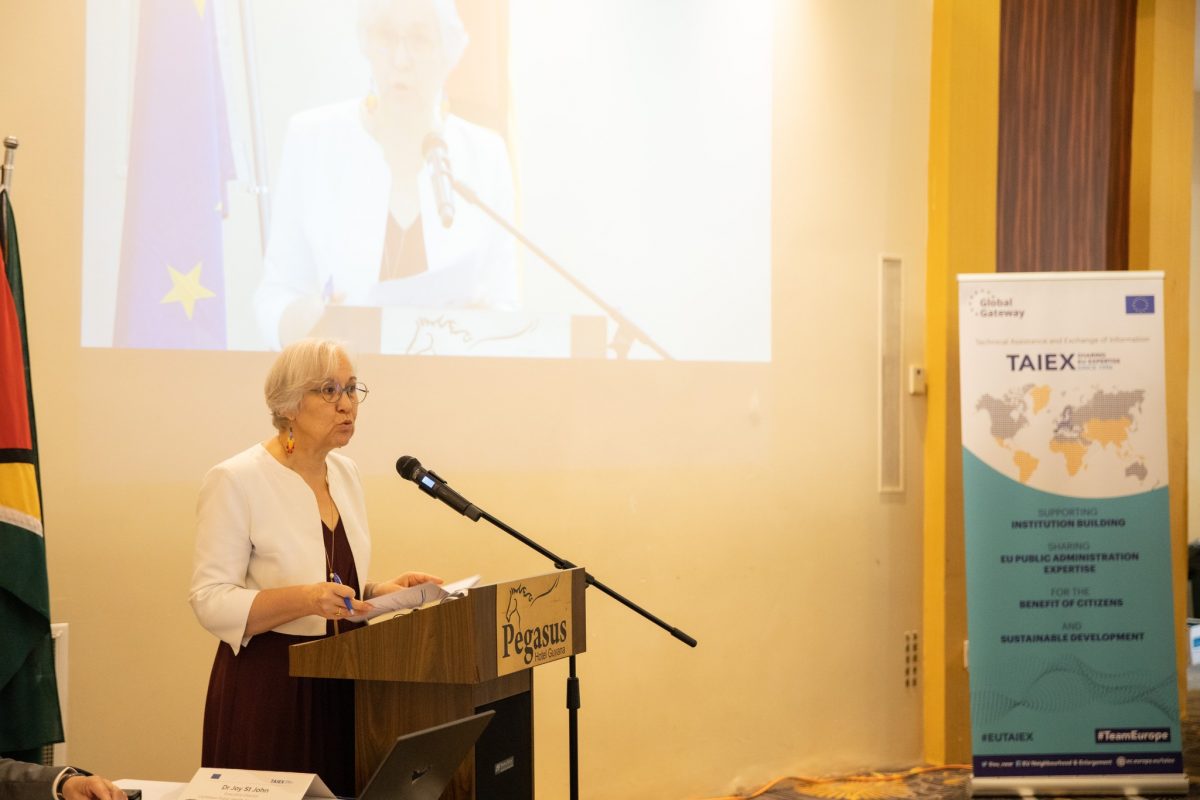The Government of Guyana is spearheading a drive to have pharmaceutical and vaccine manufacturing done locally by foreign investors in an effort to boost the region’s self-sufficiency and reduce import dependency.
To this end, a Ministry of Health press release on Wednesday announced the convening of a two-day hybrid workshop geared at strengthening the European Union, Latin America, and Caribbean partnership on health resilience and vaccine production.
A press release explained that the workshop at the Pegasus Hotel in Georgetown, was a collaboration between the European Union Delegations in Guyana and Barbados, the Ministry of Health, and the Caribbean Public Health Agency (CARPHA). Over 50 participants from Caricom nations were invited.
The opening ceremony included Minister of Health Dr Frank Anthony, PAHO Country Representative to Guyana Dr Luis Codina, Advisor to the Minister of Health Dr Leslie Ramsammy, Executive Director of CARPHA Dr Joy St John and other officials.
The release reminded that in November last year, the Prime Minister of Barbados, the President of Guyana, and the President of Rwanda, signed an agreement to launch the “Pharmaceutical Equity for a Global Public Health” initiative, “which aims to share the interests of Latin America and Caribbean leaders in enhancing their health systems and promoting local manufacturing capacities.”
It said that in his remarks at the opening, Minister Anthony reflected on the challenges of acquiring COVID-19 vaccines in 2020 and noted the need for sufficient capacity in every geographical region, to care for the population, which makes this initiative important.
“For many months while vaccines were available, the people of the Caribbean region were left without any vaccines because we didn’t have access. It was not a question of getting money to buy vaccines because the government had prioritised that. But even when we had money, we couldn’t have access to the market to do that. I don’t think people have talked before about the geographical inequities that exist in terms of the production of pharmaceuticals, vaccines, and so forth, and when you have something like a pandemic where supply chains and logistics are locked down, you can have all these problems of moving things from point A to point B and getting them there on time to save lives,” the release quoted him as saying.
It said he added, “We have now come to a position where we feel that in every geographical region, there must be sufficient capacity to care for the population that is around you, and if we’re working on that principle, then we would have to assess the system to identify the challenges and provide alternatives to build the global standards. That’s why this initiative is very important,”
He also noted that an assessment of Guyana’s environment was conducted by experts from PAHO to ensure pharmaceutical and vaccine manufacturing could be carried out in the country. The results from the assessments will inform how and where to make the investments in order to establish the manufacturing facilities, according to the release.
Anthony highlighted that the aim of this initiative is for Guyana to create the manufacturing environment and have other companies do the manufacturing. He stressed that the intention was not to do the manufacturing ourselves, but instead to create an “enabling” environment so that companies can come here and set up manufacturing plants, manufacture here, and be able to distribute to the region.
Meanwhile, Ambassador of the EU Delegation to Guyana Rene van Nes stated that the EU Delegation was happy to be part of this initiative and will continue to support it throughout the establishment. He added that throughout the workshop, experts from Italy, Spain, and other countries will join to share their insights and knowledge on regulations, legislation, and best practices on pharmaceuticals, the release added.





